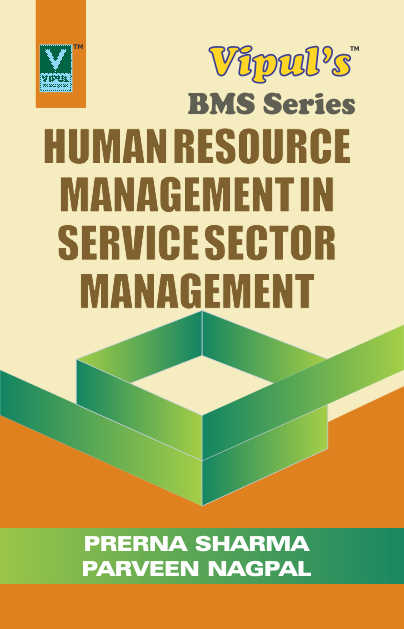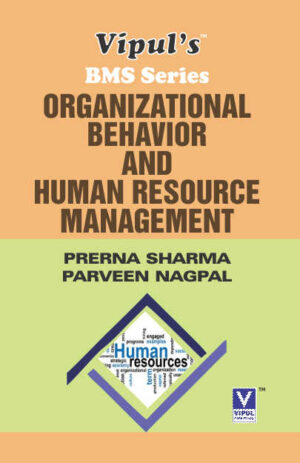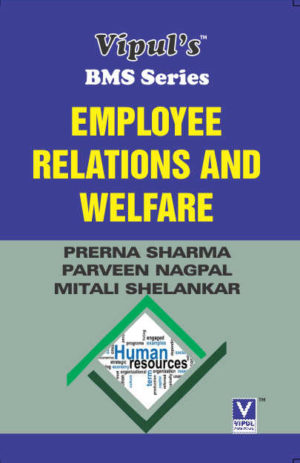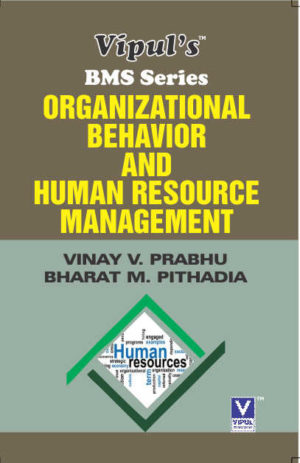HRM in Service Sector Management
₹145.00
TYBMS — SEMESTER – VI
Author: Prerna Sharma
Parveen Nagpal
SEVENTH REVISED EDITION 2025
Description
SYLLABUS
(1) Service Sector Management – An Overview:
- Services: Meaning, Features, Classification of Services: End User, Degree of Tangibility, People Based Services, Expertise Required, Orientation Towards Profit, By Location.
- Service Sector Management: Meaning, Significance of Service Sector, Reasons for Growth in Service Sector.
- Service Organization: Importance of Layout and Design of Service Organization, Servicescape.
- Service Culture in Organization: Meaning, Developing Service Culture in Organization.
- Relationship Marketing: Meaning, Need and Importance in Service Sector Organizations, Six Market Model.
- Role of Service Employee.
- Role of Customers in Service Process: Customers as Productive Resources, Customers as Contributors to Service Quality, Customers as Competitors.
- Service Encounter and Moment of Truth: Meaning, Nature, Elements of Service Encounter.
(2) Managing Human Element in Service Sector:
- Human Element in Service Sector: Introduction, Role and Significance.
- The Services Triangle.
- Front Line Employees/Boundary Spanners: Meaning, Issues Faced by Front Line Employees: Person/Role Conflicts, Organization / Client Conflict, Inter client Conflict.
- Emotional Labour: Meaning, Strategies for Managing Emotional Labour.
- Recruitment in Service Sector: Recruiting Right People, Recruitment Procedures and Criteria, Challenges in Recruitment in Service Sector.
- Selection of Employees in Service Sector: Interviewing Techniques: Abstract Questioning, Situational Vignette, Role Playing.
- Develop People to Deliver Service Quality.
- Compensating Employees in Service Sector.
- Motivating Employees for Services.
- Empowerment of Service Workers: Meaning, Advantages and Limitations.
(3) Issues and Challenges of HR in Service Sector:
- Quality Issues in Services: Meaning and Dimensions of Service Quality, The Service – Gap Model, Reasons and Strategies to fill the Gaps.
- Delivering Services through Agents and Brokers: Meaning, Advantages, Challenges, Strategies for Effective Service Delivery through Agents and Brokers.
- HRM in Public Sector Organizations and Non-Profit Sector in India.
- Issues and Challenges of HR in Specific Services:
- Business and Professional Services: Banking and Insurance, Legal, Accountancy.
- Infrastructure: Roads, Railways, Power.
- Public Services: Police, Defense, Disaster Management.
- Trade Services: Wholesale and Retail, Advertising, Maintenance and Repairs.
- Personnel Services: Education, Health Care, Hotels.
- Social and Charitable Services.
(4) HRP Evaluation, Attrition, Retention and Globalisation:
- Human Resource Planning Evaluation in Service Sector: Meaning, HRP Evaluation Process, Purpose of HRP Evaluation in Service Sector, Issues Influencing HRP Evaluation in Service Sector.
- Service Leadership: Meaning, Integrating Marketing Operation and Human Resources, Creating a Leading Service Organization, The Service – Profit Chain Model.
- Attrition in Service Sector: Meaning, Reasons for Attrition in Service Sector, Cycle of Failure, Cycle of Mediocrity and Cycle of Success.
- Retaining the Best People in Service Sector: Including Employees in Company’s Vision, Treat Employees as Customers, Measure and Reward String Service Performers.
- Globalization of Services: Meaning, Reasons for Globalization of Services, Impact of Globalization on Indian Service Sector. Organisational Effectiveness, Ways to Enhance Organisational Effectiveness.










